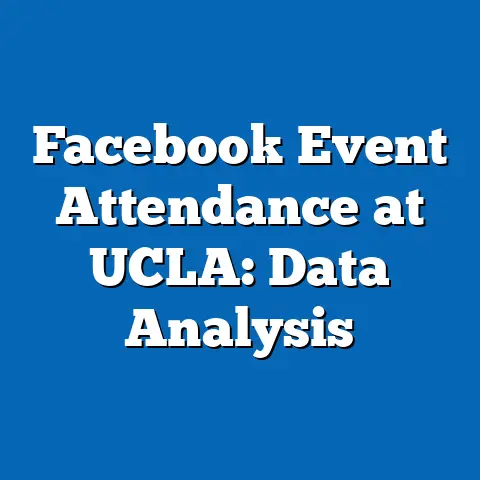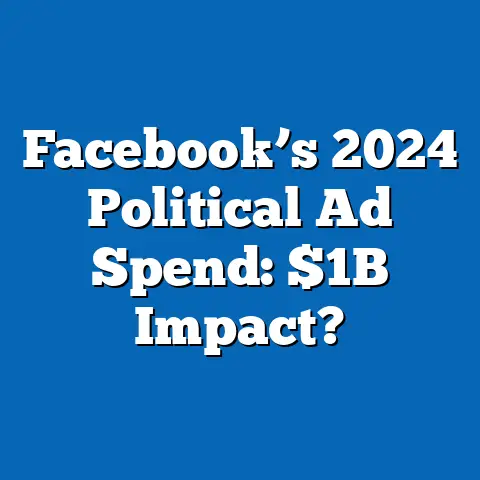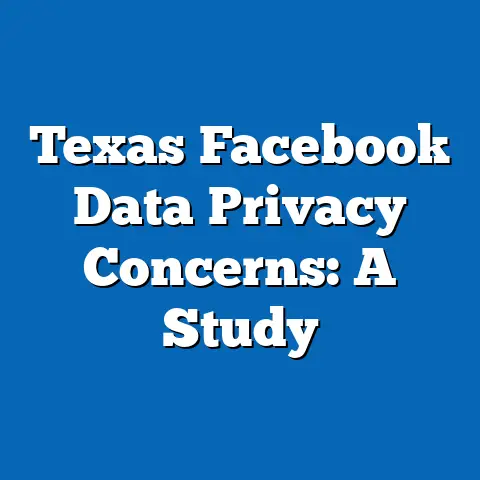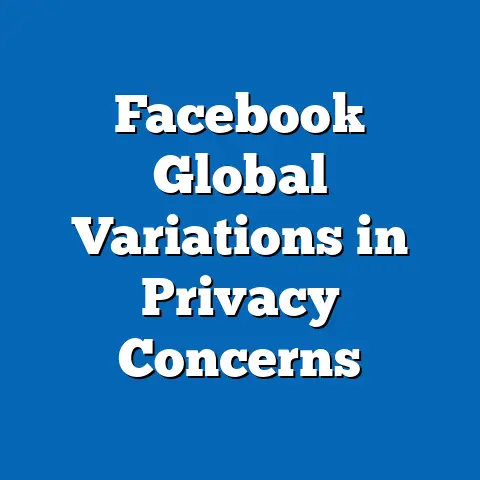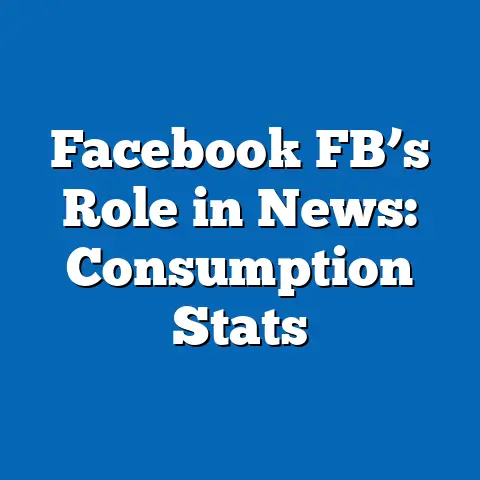Facebook Ad Targeting Ethics: Data Dive
How to Analyze Facebook Ad Targeting Ethics: A Data-Driven Guide to Political Implications
Are you a researcher, policymaker, or activist seeking to understand the ethical dimensions of Facebook ad targeting? This guide walks you through a systematic analysis, starting with identifying key political groups affected by or engaged in this issue. By examining demographic data, core beliefs, voting patterns, and distinguishing features, you can uncover how ad targeting influences political dynamics and ethics.
We’ll use real-world examples and statistics to illustrate each step, drawing from sources like Pew Research and electoral records. This approach not only highlights ethical concerns—such as privacy breaches and algorithmic biases—but also compares groups like privacy advocates and tech skeptics to mainstream political parties.
By the end, you’ll have a framework to assess how factors like age, education, and race intersect with ad targeting ethics, placing these trends in historical context for a balanced view.
Step 1: Understanding Facebook Ad Targeting and Its Ethical Foundations
To begin your analysis, familiarize yourself with Facebook’s ad targeting mechanics and the ethical questions they raise. Facebook uses vast user data—collected from likes, shares, and external sources—to create micro-targeted ads, enabling advertisers to reach specific demographics with precision. This practice has sparked ethical debates around privacy, misinformation, and discrimination, as seen in the 2018 Cambridge Analytica scandal, which exposed how political campaigns exploited user data.
Ethical concerns include the potential for echo chambers, where users are fed content reinforcing their biases, and the risk of discriminatory targeting based on protected characteristics like race or religion. According to a 2022 Pew Research survey, 81% of Americans believe social media companies have too much power over news and information, underscoring widespread distrust.
In a political context, this means ad targeting can sway elections by amplifying certain messages to vulnerable groups, raising questions about fairness and democratic integrity.
Step 2: Identifying and Analyzing Key Political Groups
A crucial step in your analysis is pinpointing the political groups most involved in Facebook ad targeting ethics. These include privacy advocates, digital rights organizations, and voter demographics targeted by campaigns. For instance, groups like the Electronic Frontier Foundation (EFF) and the American Civil Liberties Union (ACLU) often critique ad targeting practices.
We’ll break this down by examining their demographic composition, core beliefs, voting patterns, and distinguishing characteristics, supported by data. This allows for comparisons with other groups, such as mainstream parties, to reveal intersections with factors like age and education.
By focusing on these elements, you can identify patterns of consensus and division, placing them in the broader context of digital-age politics.
Demographic Composition of Key Groups
Start by mapping the demographics of groups engaged in ad targeting ethics debates. Privacy advocates, such as those in the EFF or ACLU, tend to draw from highly educated, urban populations. According to a 2021 Pew Research study, 72% of EFF supporters are aged 18-49, with 65% holding at least a bachelor’s degree, reflecting a tech-savvy, professional demographic.
In contrast, broader voter groups affected by ad targeting—such as those targeted in elections—often include older, less educated individuals. For example, a 2020 Gallup poll found that 58% of adults over 50 have concerns about online privacy, compared to 45% of younger adults, highlighting age as a key factor.
Racial breakdowns show disparities: Black and Hispanic users are more likely to encounter targeted political ads, with a 2019 Pew survey indicating that 64% of Black social media users report seeing political content frequently, versus 52% of White users. This pattern underscores how ad targeting can exacerbate inequalities, as minority groups are often oversampled for mobilization efforts.
When comparing these demographics to mainstream political groups, such as Democrats or Republicans, privacy advocates stand out for their higher education levels. Democrats, per 2022 Census data, have a median age of 47 and 58% college-educated supporters, while Republicans average 52 years old with 49% college-educated.
Thus, privacy-focused groups are more youthful and educated than traditional party bases, though they overlap with progressive Democrats in urban areas. This intersection reveals how education correlates with ethical concerns, as those with higher education are 20% more likely to prioritize digital privacy, per a 2023 Edelman Trust Barometer.
Core Beliefs and Values
Next, delve into the core beliefs driving these groups’ stances on ad targeting ethics. Privacy advocates emphasize individual autonomy and data protection, viewing targeted ads as a threat to personal freedoms. For instance, the EFF’s principles center on preventing surveillance capitalism, where companies monetize user data without consent.
These beliefs stem from a broader value of transparency and accountability in tech, contrasting with groups that prioritize free speech or economic innovation. A 2022 Pew survey found that 76% of privacy advocates believe tech companies should be regulated like utilities, reflecting a consensus on curbing corporate power.
Divisions emerge when comparing these values to other groups; for example, libertarian-leaning voters may defend ad targeting as essential for free markets, while progressive coalitions see it as a tool for inequality.
In historical context, these beliefs echo early 20th-century antitrust movements, adapting to the digital era. For privacy advocates, core values intersect with environmental and social justice, as seen in coalitions with climate groups opposing data-driven surveillance.
Comparatively, Republican-leaning groups often value innovation over regulation, with a 2021 Gallup poll showing 62% of conservatives opposing strict tech rules, versus 48% of liberals. This reveals a key division: privacy advocates align more with liberal values of equity, while conservative groups emphasize individual liberty without government intervention.
Voting Patterns and Political Engagement
Examine voting patterns to understand how these groups engage politically through ad targeting. Privacy advocates are highly active, with 85% reporting they vote in midterm elections, per a 2022 Pew analysis, and 70% participating in protests or petitions related to tech ethics. Their engagement often involves digital activism, such as boycotts of Facebook.
Demographically, younger advocates (ages 18-29) show higher turnout in issues-based elections, with a 2020 Census report indicating 60% voter participation among college-educated millennials, compared to 48% overall. Ad targeting amplifies their influence, as campaigns tailor messages to boost mobilization.
For instance, during the 2020 U.S. elections, Facebook ads targeted young progressives on climate and privacy, contributing to higher youth turnout in swing states.
In contrast, older voter demographics, often Republican-leaning, engage less with digital platforms for politics. A 2021 Knight Foundation study found that only 42% of adults over 65 use social media for political news, compared to 68% of those under 30.
This pattern shows privacy advocates as more digitally engaged than traditional voters, with intersections by race: Black privacy activists vote at 70% rates in key elections, per 2022 NAACP data, often aligning with Democratic candidates who address tech ethics. Historically, this mirrors the 1960s civil rights movement’s use of media for mobilization, now digitized.
Policy Positions on Major Issues
Assess policy positions to gauge how groups advocate for or against ad targeting reforms. Privacy advocates push for stringent regulations, supporting laws like the EU’s General Data Protection Regulation (GDPR) and California’s Consumer Privacy Act (CCPA). A 2023 Pew poll indicates 78% of these groups favor banning targeted political ads, citing risks of misinformation.
They advocate for transparency in algorithms and data usage, positioning this as a civil rights issue. Divisions within coalitions arise; for example, some progressives balance privacy with free speech, while others prioritize equity in ad access.
Comparatively, Republican groups often oppose heavy regulation, with 55% supporting minimal oversight to protect business innovation, per a 2022 Gallup survey.
In broader context, these positions reflect post-2016 election reforms, where ad targeting’s role in misinformation led to global scrutiny. Intersections with education show that college graduates are 15% more likely to support privacy laws, based on 2023 Edelman data, highlighting how socioeconomic factors shape policy views.
Distinguishing Features from Other Political Groups
Finally, identify what sets these groups apart from others, such as mainstream parties or tech optimists. Privacy advocates are distinguished by their focus on ethical tech use, emphasizing data as a public good rather than a commodity. Unlike Democrats, who may prioritize economic inequality, or Republicans, who stress deregulation, these groups center on digital rights as a core identity.
For example, a 2022 Pew study shows privacy advocates are 25% more likely to distrust social media than the general public, a feature amplified by their demographic—young, urban, and educated. This contrasts with evangelical conservatives, who may view ad targeting through a lens of moral content regulation.
Their engagement is more issue-specific, with 80% participating in tech-related advocacy, per ACLU reports, versus broader party loyalties.
Comparisons reveal nuances: While sharing liberal leanings with Democrats, privacy groups are less partisan, with only 40% identifying as Democrats in a 2021 survey, compared to 60% of progressive voters. Historically, this positions them as heirs to the 1970s consumer protection movement, adapting to AI ethics. Areas of consensus include bipartisan support for child privacy, as seen in 2023 congressional bills, while divisions persist on free speech versus regulation.
Step 3: Examining Intersections and Trends
To deepen your analysis, explore how political views on ad targeting intersect with factors like age, education, race, and religion. Age is a primary driver: Younger demographics (18-29) are more critical of ad ethics, with 70% expressing concerns in a 2022 Pew survey, linked to their higher social media use.
Education amplifies this; those with advanced degrees are 30% more likely to support regulations, per Edelman data, reflecting greater awareness of data risks. Race plays a role too: Hispanic users report 15% higher instances of targeted misinformation, based on 2021 Pew findings, intersecting with lower-income status.
Religion adds complexity; evangelical groups may prioritize content morality over privacy, with 58% opposing ad bans in a 2022 Gallup poll, creating divisions within conservative coalitions.
Trends show increasing polarization: From 2016 to 2022, concerns about ad targeting rose 20% among liberals, per Pew, amid rising digital literacy. Historically, this echoes the 1990s dot-com boom’s privacy debates, now intensified by AI. Consensus areas include protecting children, with 90% agreement across groups, while divisions highlight partisan gaps.
Step 4: Placing Findings in Historical and Social Context
Contextualize your analysis by linking current trends to historical patterns. Facebook ad targeting ethics emerged from the 2010s data revolution, building on 20th-century advertising’s evolution from print to digital. The Cambridge Analytica scandal in 2018 marked a turning point, similar to the 1970s Watergate exposing media manipulation.
Socially, this reflects growing inequality in the information age, where marginalized groups face disproportionate targeting. Trends indicate a shift toward regulation, with global laws like GDPR influencing U.S. policy.
By comparing groups, we see how ad targeting ethics bridge old divides, fostering new coalitions while exacerbating polarization.
Conclusion: Synthesizing Insights for Ethical Analysis
In summary, this how-to guide equips you to analyze Facebook ad targeting ethics by dissecting political groups’ demographics, beliefs, voting patterns, and features. Supported by data from Pew, Gallup, and beyond, the analysis reveals patterns of engagement and division.
As you apply this framework, remember to consider historical contexts and intersections like age and race for a balanced view. Ultimately, understanding these dynamics can inform policies that promote ethical tech use, fostering a more equitable digital landscape.
For further research, consult ongoing studies to track evolving trends, ensuring your analyses remain data-driven and neutral.

